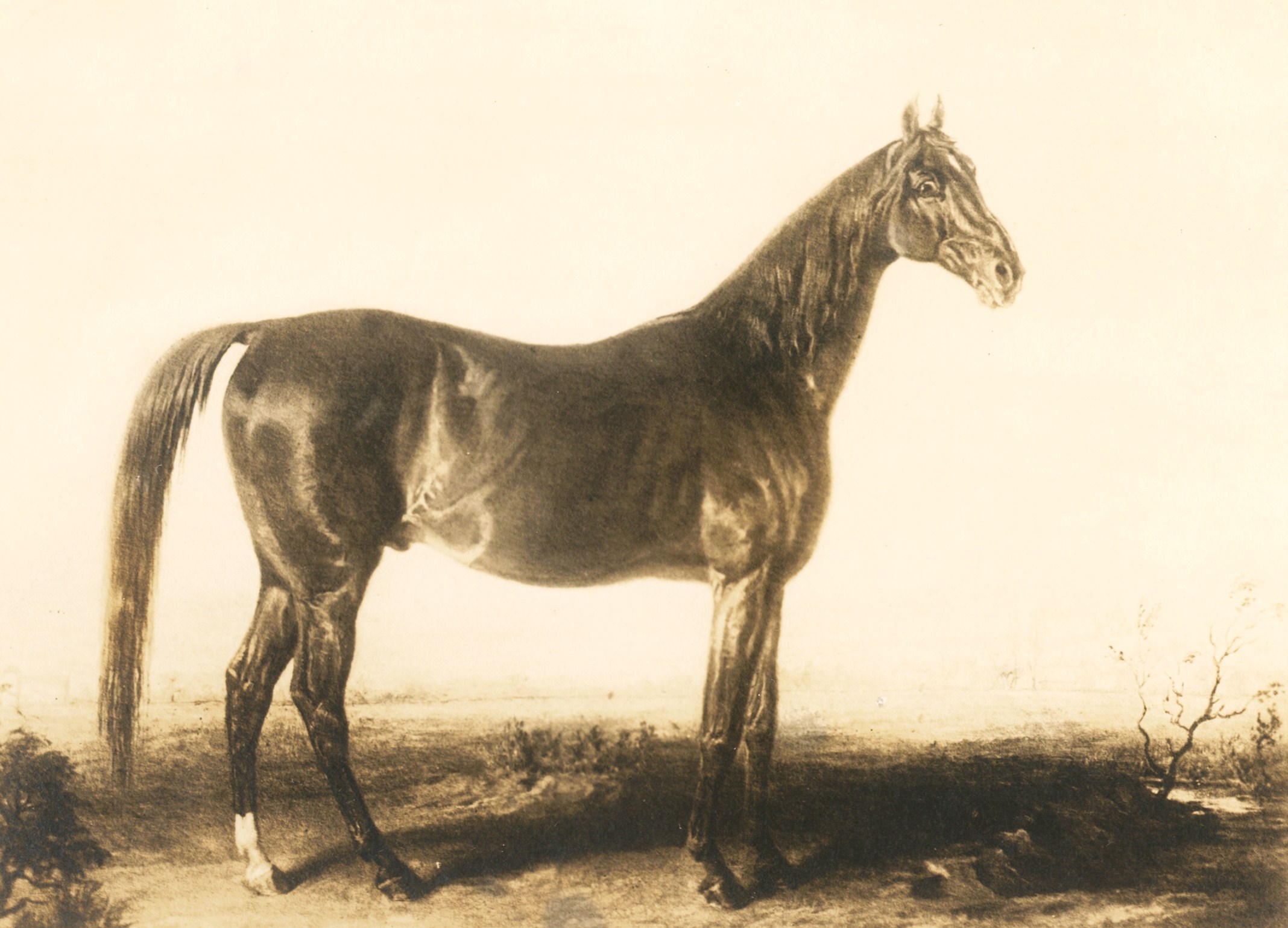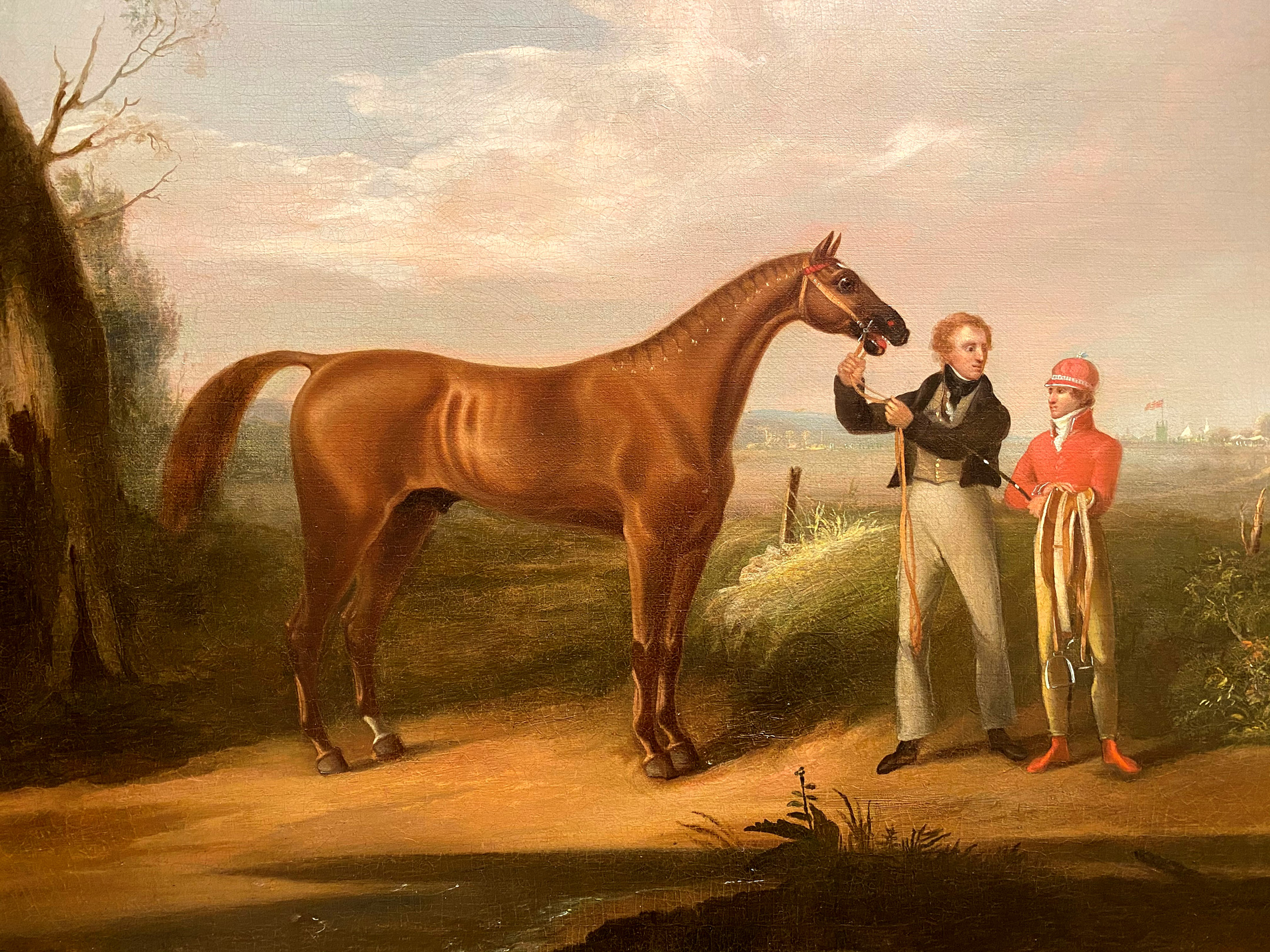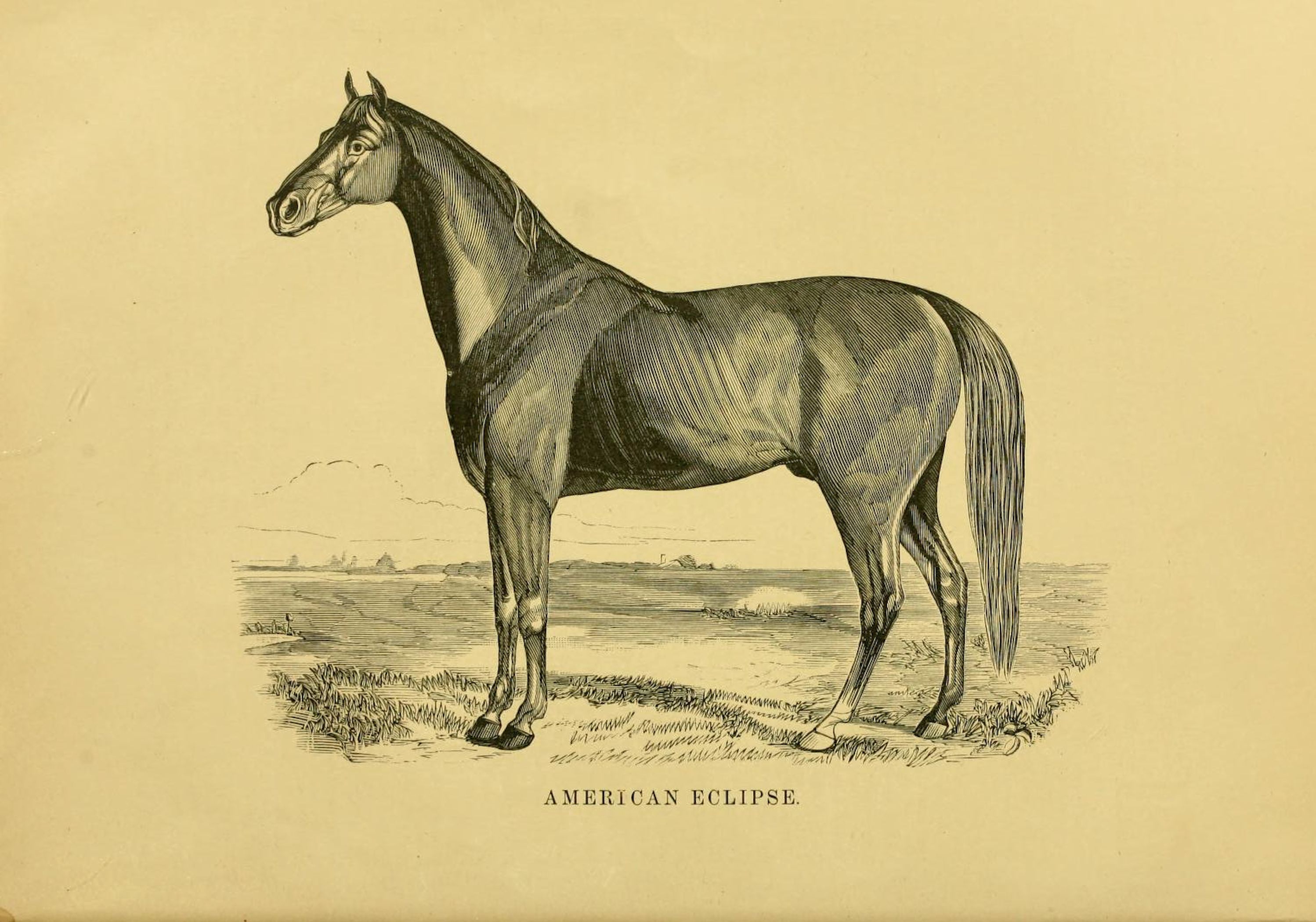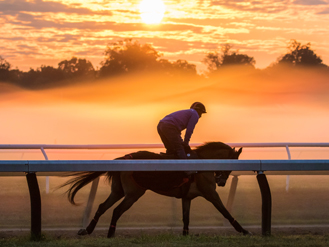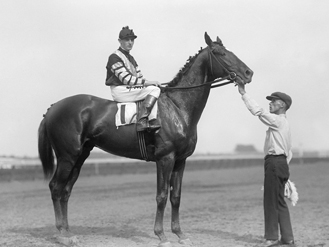American Eclipse (NY)
In 1814, a quarter-century after the death of the undefeated English racehorse Eclipse, Gen. Nathaniel Coles of Queens County, New York, bred a chestnut colt he thought was destined for greatness and named him American Eclipse.
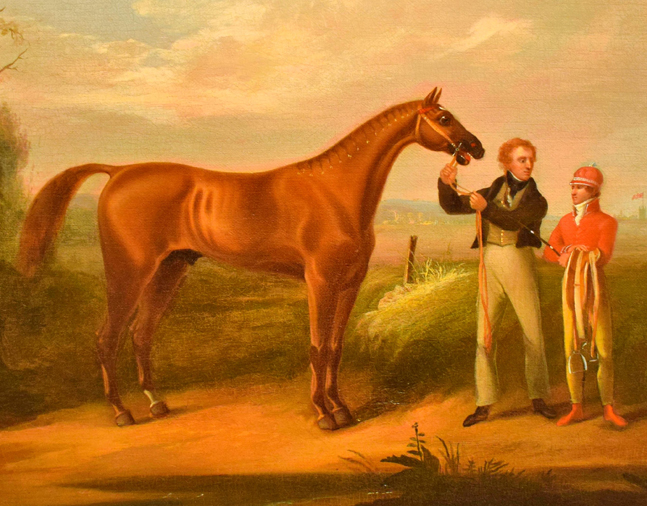
1970
1814
Duroc
Miller's Damsel
Messenger
Gen. Nathaniel Coles
Gen. Nathaniel Coles
Cornelius Van Ranst
No record exists
1818-1823
$25,000
Racing Record
8
Starts
| 1818 | 1 | 1 | 0 | 0 | $300 $300 |
| 1819 | 2 | 2 | 0 | 0 | $1000 $1,000 |
| 1821 | 1 | 1 | 0 | 0 | $500 $500 |
| 1822 | 3 | 3 | 0 | 0 | $3200 $3,200 |
| 1823 | 1 | 1 | 0 | 0 | $20000 $20,000 |
Biography
In 1814, a quarter-century after the death of the undefeated English racehorse Eclipse, Gen. Nathaniel Coles of Queens County, New York, bred a chestnut colt he thought was destined for greatness and named him American Eclipse.
Foaled May 25, 1814, American Eclipse was a son of Duroc out of the *Messenger mare Miller’s Damsel. He arrived at the races as a 4-year-old in May 1818 at the Newmarket Course on Long Island, New York. American Eclipse easily won a pair of three-mile heats for a purse of $300 from Black-Eyed Susan and Sea Grill.
Turned out for the remainder of the year, American Eclipse returned to training at age 5 in 1819 and was sold for $3,000 to Cornelius W. Van Ranst. In his first effort for Van Ranst, American Eclipse won a $500 purse at Bath, near Gravesend, defeating three foes. In October, he won another $500 purse at Bath, again defeating three opponents. Both events were contested as four-mile heats.
At age 6, American Eclipse was retired to stud, attracting a book of 87 mares in the spring of 1821. Van Ranst, however, put American Eclipse back in training in the fall of 1821. For a $500 purse at four-mile heats, American Eclipse met the celebrated Virginia mare Lady Lightfoot at the new Union Course on Long Island. Lady Lightfoot had won 31 races and was a 2-1 favorite over American Eclipse.
American Eclipse won the first heat by two lengths after Lady Lightfoot set the pace early. In the second heat, Lady Lightfoot led for the first two miles, but American Eclipse was able to pull away for an easy victory.
As an 8-year-old in 1822, American Eclipse won a $700 purse in the spring at the Union Course at four-mile heats against Sir Walter. That fall, again at the Union Course, American Eclipse defeated Sir Walter and two mares for a $1,000 purse.
Virginia horseman James J. Harrison then issued a challenge, $5,000 a side at four-mile heats at Washington, D.C., between American Eclipse and Virginia-bred Sir Charles, who had won 20 of 24 races. Van Ranst accepted, but Sir Charles injured a tendon during training and Harrison paid a forfeit fee. Harrison suggested as a substitute a single four-mile heat for $1,500 a side, which Van Ranst accepted. American Eclipse quickly went to the lead, set a leisurely pace and won easily as Sir Charles broke down during the race.
Col. William R. Johnson, who had the biggest racing stable in the country at the time, took exception to a New York horse defeating a star of the South. Johnson proposed a match race for the following year pitting American Eclipse against a southern horse of Johnson’s choosing for $20,000 a side.
On May 27, 1823, American Eclipse, at the age of 9, met the southern sensation Sir Henry, a 4-year-old, at the Union Course before a crowd estimated at 60,000 in the first epochal North vs. South match. American Eclipse carried 126 pounds, while the younger Sir Henry carried 108. John Walden, in the sky blue silks of Col. Johnson, sent Sir Henry to the lead immediately and owned a three-length lead through the first three miles. William Crafts, in the crimson jacket and cap of Van Ranst, finally made his move late, but Sir Henry won by a length in 7:37, a new American record for four miles.
During the 30-minute interval, Van Ranst replaced Crafts with veteran jockey Samuel Purdy, who had previously ridden American Eclipse. In the second heat, Sir Henry again led most of the way, but Purdy successfully navigated his way to the inside and American Eclipse prevailed by two lengths.
In the decisive third heat, Arthur Taylor, Johnson’s foreman and a former rider, replaced Walden aboard Sir Henry. American Eclipse went to the lead and Sir Henry was never able to reel him in. American Eclipse won by three lengths.
Undefeated in eight contests, American Eclipse was retired permanently. Four years later, he was sold for $8,050 and shipped to Virginia, where Col. Johnson stood him for a few seasons before selling him to interests in Kentucky.
American Eclipse stood in Kentucky at Col. E. M. Blackburn’s Equira Stock Farm in Woodford County and later in Shelby County. He died July 11, 1847, at the age of 33. American Eclipse sired several distinguished horses: Medoc, twice America’s leading sire; Ariel, who won 42 of 57 races, including 18 four-mile heats; Black Maria, who won 13 races, including 11 at three- and four-mile heats; as well as Mingo, Mountain Eclipse, Fordham, Bay Maria, Panic, and Zenith.
Media
